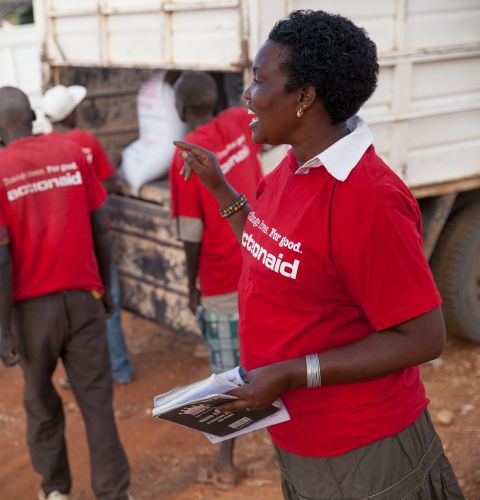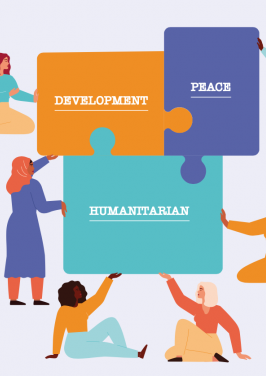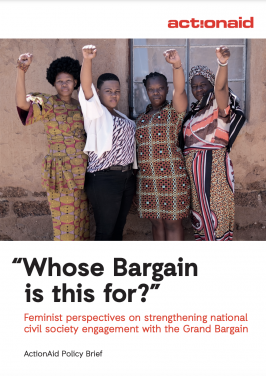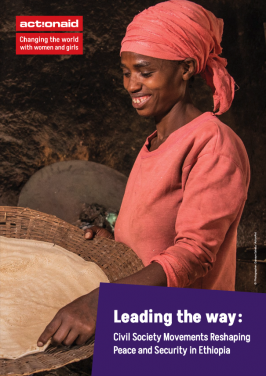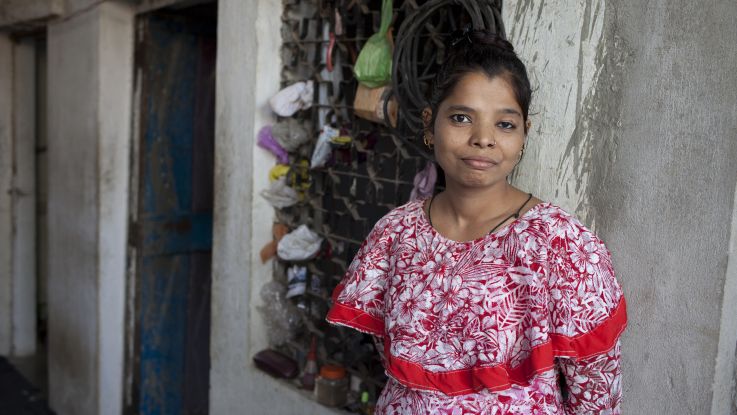Protecting women’s rights in emergencies
What are our findings on women’s rights in humanitarian crises?
- 1
With any kind of disaster, women and girls are disproportionately affected. Women and girls are usually responsible for collecting water for the family, a role that has significant consequences in times of drought.
- 2
Women’s leadership contributes to better disaster preparedness and risk reduction; more efficient and effective humanitarian response; and inclusive and sustainable peace building and conflict resolution in communities. This is because women know the distinct needs of their community, including most at-risk members, and how to implement activities to support these needs in the ongoing action towards long-lasting peace.
- 3
There are significant barriers that need to be overcome to support women's leadership and participation in humanitarian response. For example, women’s unequal share of unpaid work also limits the time and resources women have available to engage in community-level decision-making and leadership.
Our recommendations on protecting women’s rights in emergencies
- We call for recognition and valuing of the vital role that woman play in humanitarian crises. Women and girls are not simply victims of crises and recipients of relief, but have ambitions, expertise, and skills, often being the first responders. Recognition is the first step to open up space for women’s participation and their leadership in decision-making bodies in humanitarian response and peace-building recovery.
- We urge representation of women in humanitarian leadership at all levels. Donors, UN agencies, INGOs and governments should address and overcome social, economic, institutional and institutional barriers that impact of women’s ability to engage in humanitarian leadership through targeted programs, initiatives and further research.
- We demand renewed commitment to promote a humanitarian architecture that advances and protects women’s rights and allocate funds for its implementation through direct funding to local and national women’s organisations working in emergencies.
Progress on women’s rights in emergency, relief and recovery
Whilst women's rights have slowly become more recognised in humanitarian emergencies and recovery practices, their practical realisation often faces significant challenges.
Gender equality and women and girls’ empowerment during emergencies emerged as an overarching theme of the World Humanitarian Summit in 2016, with commitments under the Grand Bargain Debate (which happen annually) speaking directly to topics on localisation and gender equity. In 2000, the UN Security Council Resolution 1325 and subsequent resolutions also highlight the importance of women’s participation in conflict resolution and recovery and address their protection and rights in emergencies.
And yet, there has been far too little progress to respond to the specific needs of women and girls, gender equality and women’s leadership in humanitarian action and peacebuilding negotiations. Despite the international frameworks, humanitarian guidelines, and national policies emphasising the importance of addressing women's rights during emergencies, gaps in implementation still remain. Systemic inequalities can hinder their effective recognition and protection.

Women leading humanitarian response
Women’s leadership contributes to more inclusive, effective, and equitable emergency responses by addressing the unique needs of diverse groups, enhancing protection and safety, and fostering community resilience. Supporting women leaders in emergencies is not only a matter of gender equality but also a critical factor in achieving sustainable recovery and resilience.
Nataliia Ocheretko, from the village of Sad in Ukraine, is just one example of this methodology.
Nataliia is involved in many projects to support women and displaced people, including setting up the protection committee for her village.
She said: “When I became a deputy for my village, we had many prospects and the community was developing. But with the beginning of a full-scale invasion, the village's revenues decreased, because farmers stopped paying taxes and urgent needs increased.”
"Our men are now at war, and we have to learn something and take on some leadership roles. We need to get involved somewhere where we have not been involved before. That's why we're focusing on women in these projects."
Nataliia Ocheretko has taken a leadership role in her village since the Russian invasion.
Carol Garcia
Page updated 28 January 2025
